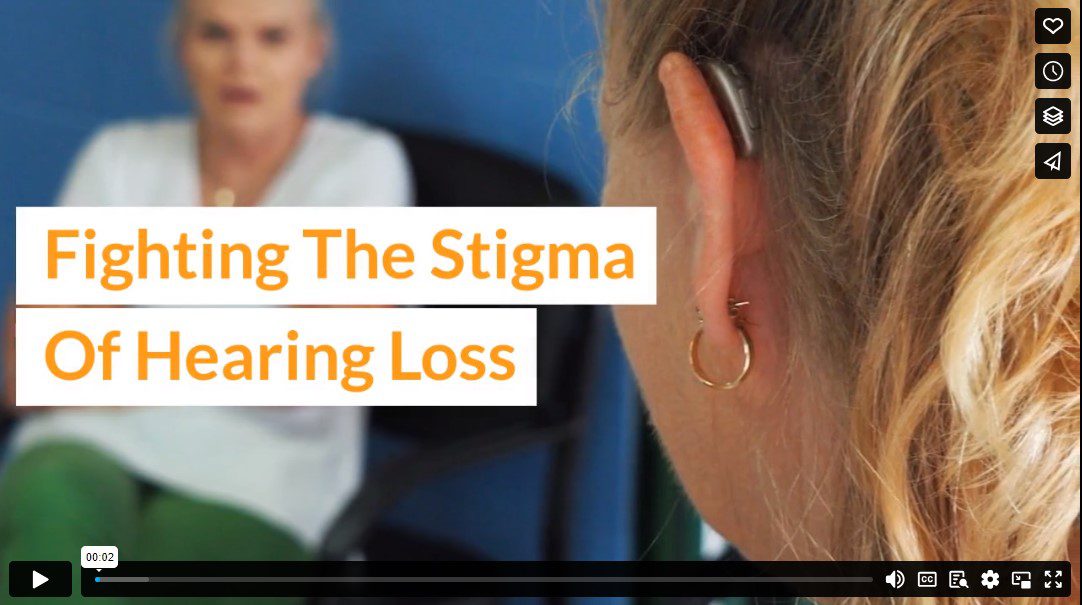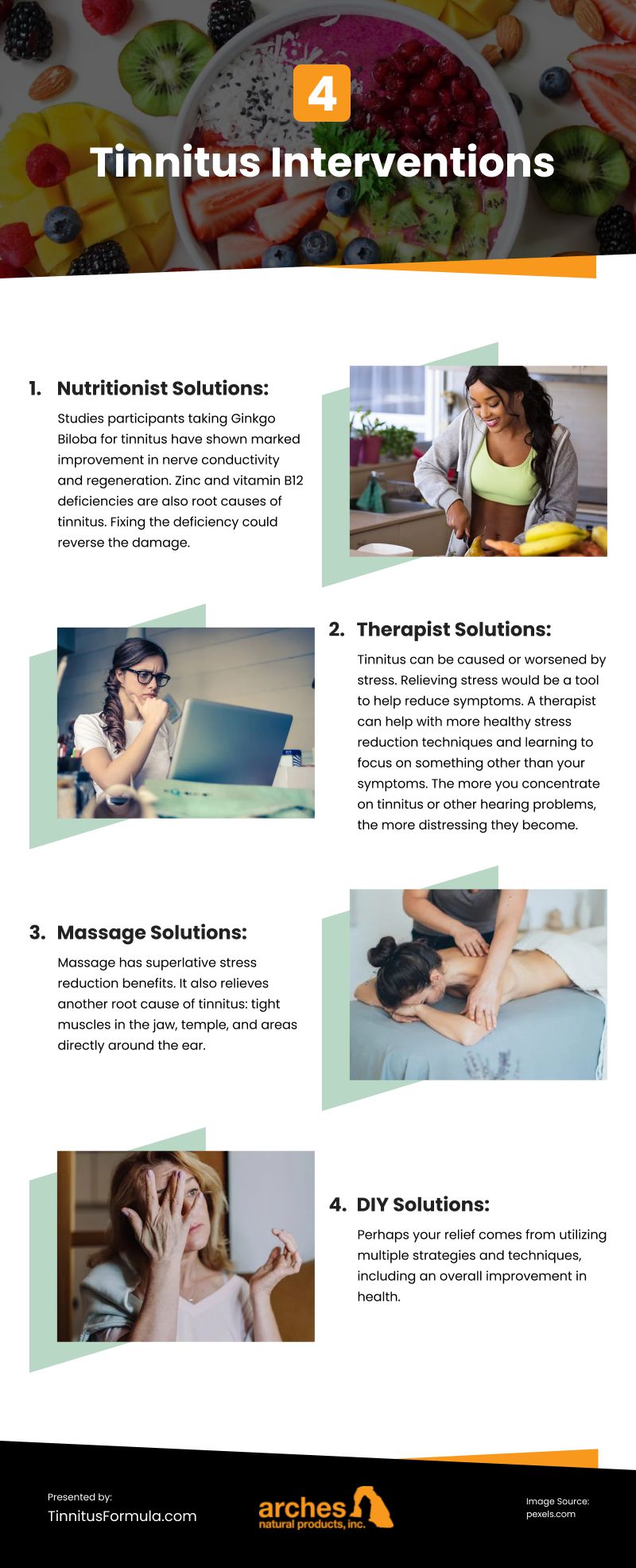By Barry Keate
Barry Keate, has lived with tinnitus over 40 years and has published 150+ research articles on numerous aspects of tinnitus. He is an expert on the condition and a well-known advocate for those with tinnitus.

(prostooleh/Freepik)
Hearing loss is a part of life. It should be no more embarrassing than needing glasses or having allergies. Children, teens, adults, and seniors all experience hearing loss. It can come from infection, head injuries, exposure to prolonged or explosive noises, as well as aging.
Unfortunately, people often wait years after first noticing signs of hearing loss before they seek medical attention. By then, hearing loss has a greater chance of being permanent, even if the original cause was reversible.
What Are People Afraid Of?
There are many reasons why people might delay seeking a doctor’s aid when dealing with hearing loss.
- Fear of being seen as old
- Fear losing our independence
- Concern that people will look at us differently
- Worry that hearing aids will be too conspicuous and embarrassing
- Not wanting to be isolated and alone
The Truth
Sometimes, without realizing it, we cause the outcome we hope to avoid by delaying treatment. Hearing loss has many causes, and some of those causes are reversible. Nutrient deficiencies, for example, can cause tinnitus. Catching the deficit before nerve damage is permanent means the nerve can heal. You are essentially healing the underlying cause by taking vitamins for tinnitus relief.
People may draw more attention to their hearing problems when they lean toward others to hear what they are saying, misunderstand what people are saying, or ask people to repeat themselves. Early intervention is be the best way to minimize the advance of hearing loss. Today’s tech-savvy shoppers can find hearing aids that look like Bluetooth speakers or hide in the ear canal, or behind the back of the ear. Hearing aids can be quite small and inconspicuous. Most people won’t even notice you have them.
Part of maintaining your independence is seeking the tools that let you function independently. By improving your hearing, whether with tinnitus products, therapies, or hearing aids, you are taking control of your life and prolonging your independence. You are less likely to isolate yourself if you can join the conversation, even in crowded rooms, and refrain from asking people to repeat themselves.
Hearing aids have come a long way. They can be molded to fit your ear canal to cut out ambient noise, echoes, and feedback. You can control them with your phone, raising or lowering the volume. They can be adjusted to pick out conversations better and block background noise. With better hearing, you also avoid appearing rude and offending people. If they call out a greeting and you keep walking by as if you didn’t hear them, they may assume you’re ignoring them.
What Now?
The first step is to see your doctor and have a hearing test. They can determine the root cause of your hearing problems and possibly restore your hearing. If not, they can help you devise a treatment plan.
What If Your Doctor Tells You There Is No Cure?
For hearing loss due to aging there are numerous effective treatments but likely no cure. For other types of hearing loss, you can always get a second opinion. Each profession has its own way of doing things. They each have a different toolbox to work with. Here are just a few examples of alternative treatments for tinnitus:
Nutritionist Solutions: Studies participants taking Ginkgo biloba for tinnitus have shown marked improvement in nerve conductivity and regeneration. Zinc and vitamin B12 deficiencies are also root causes of tinnitus. Fixing the deficiency could reverse the damage.
Therapist Solutions: Tinnitus can be caused or worsened by stress. Relieving stress would be a tool to help reduce symptoms. A therapist can help with more healthy stress reduction techniques and learning to focus on something other than your symptoms. The more you concentrate on tinnitus or other hearing problems, the more distressing they become.
Massage Solutions: Massage has superlative stress reduction benefits. It also relieves another root cause of tinnitus: tight muscles in the jaw, temple, and areas directly around the ear.
DIY Solutions: Perhaps your relief comes from utilizing multiple strategies and techniques, including an overall improvement in health.
- Insomnia worsens tinnitus symptoms, so consistently get seven to nine hours of sleep a night.
- Nerves need good blood flow and oxygenation. Daily aerobic exercise of 20 minutes or more will improve circulation around your nerves.
- While some nutrients improve tinnitus, other foods worsen your symptoms. People with diabetes are especially prone to nerve damage caused by metabolic resistance and the fluctuation between too much sugar and too much insulin. Eat whole foods and limit sugar, artificial sweeteners, caffeine, and alcohol.
- Sometimes, dealing with troubling tinnitus or other hearing loss symptoms means finding something else to hold our attention. Find activities, hobbies, and people you enjoy and live a full life.
Seeking Help Early
Don’t let fear stop you from seeking help. Talking to the right person could lead you to a solution. Even if they can’t cure hearing loss 100%, there are things you can do to make your quality of life better. The trick is finding the combination that works best for you.
Video

Infographic
Hearing loss is common, but people often delay seeking medical attention. Delaying treatment can worsen the condition. Hearing loss has many causes, including reversible ones like nutrient deficiencies that can cause tinnitus. Check out a few examples of alternatives for tinnitus in this infographic.

Get Free Shipping!
Order now and get free shipping on either the Tinnitus Starter Kit or Combo Pack. Try the doctor recommended products with clinically proven ingredients for tinnitus. No coupon code required.

